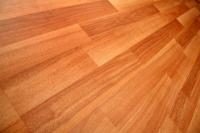How do you recognize good honey?
Sweet, tart, spicy - honey offers many different flavors. Even the beekeeper is always surprised by his honey, because the natural product always tastes different. Depending on how the bee colony is cared for, when the centrifugation takes place and what climatic conditions prevail, unexpected flavors are reflected in the honey. This diversity is what makes honey. But it is not the only quality criterion. How do you recognize good honey and is it available in the supermarket?

Good honey from the supermarket - is that possible?
Beekeepers like to get excited about buying honey in the supermarket. Of course, because they want to sell their product to men. Or is there some truth behind the aversion?
- It is quite difficult to find good honey in the supermarket. Because discounter honey has a decisive disadvantage: it should offer constant taste. Since honey always tastes different on its own, mass producers work with ultrafiltration to ensure consistency of taste.
- This process removes ingredients from the natural honey mass. Parts of the pollen are filtered out so that one branded product does not taste different from the other. Consumers should know exactly what to expect. Unfortunately, real honey isn't exactly that: a predictable constant of taste.
- Filtered out components from mass producers are replaced by production-dependent additives, which falsify the natural taste of honey and the individual nuance of every bottling universalize. There is no such thing as diversity.
- Not only the lack of variety becomes a problem for discounter honey. Most of the products come from other countries. The honey has traveled widely and has contributed to the threat to the environment through its transport.
- Apart from that, nobody can guarantee that foreign products are free from pesticides. Even if there is an organic seal, the controls abroad are less strict than in Germany. In addition to pesticide pollution, this also applies to production processes and fair trade principles.
You are looking for a particularly healthy type of honey, but at the latest before ...
Who good honey wants to buy more regional products. But how can you even recognize good honey?
As tender as honey - how you can recognize quality
The breakfast bread is crumbling. Crumbs hang on the knife and the morning lubrication of the rolls culminates in sore muscles. All of this for a single honey bread. You know that Then you are not dealing with high quality products.
- In addition to the taste nuances, differences in the spreadability of honey products can give the consumer an indication of the quality of the natural product. So how do you recognize good honey? In terms of tenderness. The beekeeper sifts, foams and stirs the product after spinning. If carried out professionally, these processes lead to a consistency that does not allow the bread to crumble when it is spread.
- But be careful - too tender honey productions are usually provided with additives that speak for poor quality. Honey that is just as easy to spread as butter is not all that natural.
- Spinning can also provide information about the quality of the product. You can recognize good honey by its cold spin. If the honey is heated, important enzymes are lost.
- There is a connection with the aforementioned criterion in the storage. If stored too long, honey will crystallize. This leads to the fact that the mass becomes hard. In order to make them spreadable again, the product has to be warmed up. This is the case with honey from abroad, for example, because it usually takes too long to travel. Good honey can also be recognized by the shortest possible storage time.
- Unfortunately, the seals on honey products rarely allow reliable statements about the enzyme balance, centrifugation, stirring, sieving or storage. It therefore makes sense to buy honey directly from the beekeeper. He can show you how he handles the work process. There is no more direct quality assurance.
Finally, let me give you one thing: honey is not just honey. For seasonal honey, forest honey, acacia honey etc. In detail, different rules of taste apply, which cannot be summarized under a single quality criterion. Ask your beekeeper about this. The good news: You can also test his specialist knowledge.
How helpful do you find this article?



